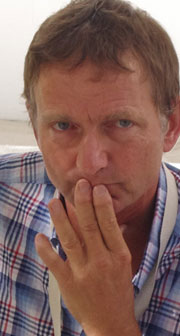SCIENCE FOR SUSTAINABILITY: WHY INTER-CONNECTED PROBLEMS CALL FOR INTER-CONNECTED KNOWLEDGE
|
|
Joe Ravetz, Co-Director of the Centre for Urban & Regional Ecology at the University of Manchester.
He works on sustainable cities and regions, with interests in foresight / future studies for urban / environmental issues, new economics and governance, innovation and transition studies. Joe’s main publications include ‘City-Region 2020’: ‘Environment and City’ (co-authored), and the forthcoming ‘Urban 3.0: creative synergy and social intelligence’ (Earthscan / Routledge). Through these a unique research agenda has emerged, on the ‘shared-mind’ social intelligence of urban systems. The ‘synergistic mapping’ toolkit helps to analyse and design systems of cognitive complexity, with pathways for ‘grand societal challenges’, such as climate change, urban poverty or economic resilience. Joe has worked with the UN Industrial Development Organization & UN Habitat, Institute for Alternative Futures, Rockefeller Foundation, WWF-International, Finland Environment Institute, Manchester Institute of Innovation Research, European Commission DG Regio / DG Research / ECOSOC, UK Dept of Environment, Regional Development Agencies, Government Office of Science, Environment Agency, research councils and many professional bodies. With a background as an architect / planner, he is a keen visual thinker and graphic facilitator in foresight / futures / sustainability processes. He is a board member of the International Journal for Sustainable Development, Foresight Journal and Sustainable Mediterranean Construction: Principal at SAMI Consulting: and delivers training, seminars, keynotes and reviews in many countries. |


